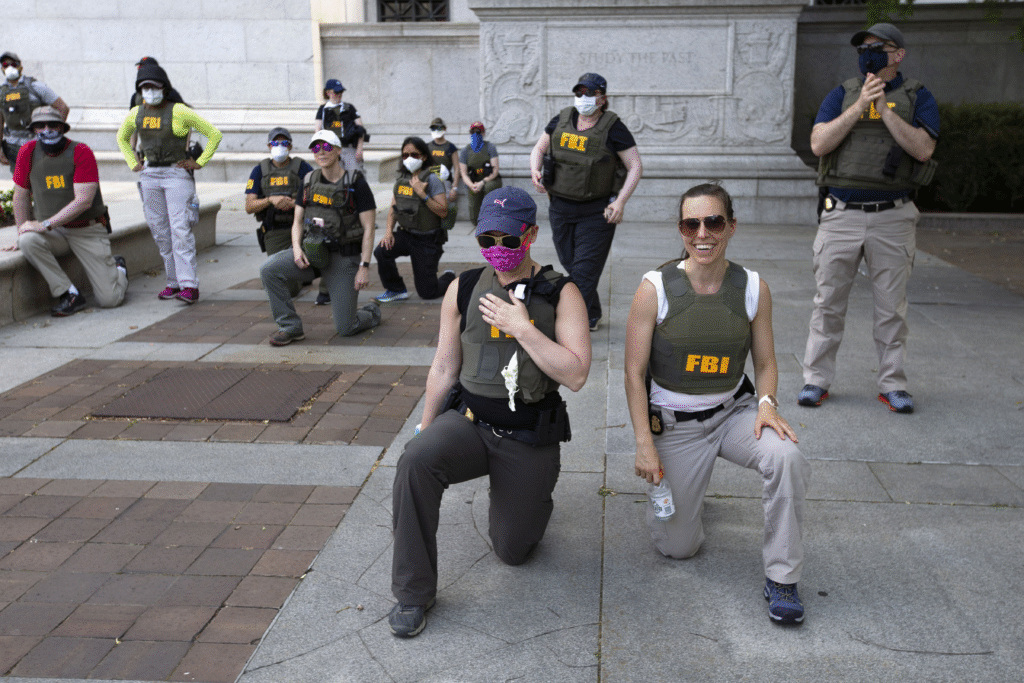The Truth About the FBI and George Floyd: The first and most crucial point to clarify is that George Floyd was not an FBI agent. George Perry Floyd Jr. was a civilian, a father, and a community member whose life was tragically cut short on May 25, 2020, in Minneapolis, Minnesota. His death at the hands of a police officer, Derek Chauvin, sparked a global movement for racial justice and police reform. Floyd’s final words, “I can’t breathe,” became a rallying cry for millions protesting against systemic racism and police brutality.
Understanding who George Floyd was is essential to grasping the context of the protests and subsequent events. He was a Houston native who had moved to Minneapolis to start a new life. He was a bouncer and a truck driver, and he was known to his community as “Big Floyd.” His story, and the outrage over his death, is what led to the widespread demonstrations that are central to this topic.
The Real Story: Why Were FBI Agents Fired?
While George Floyd was not an FBI agent, there is a real story about the FBI firing agents in connection with the protests over his death. According to multiple news reports from late September 2025, the FBI has fired a number of agents who were photographed kneeling during a racial justice protest in Washington, D.C., in 2020.
The gesture of “taking a knee” was widely adopted during the protests as a symbol of solidarity with the Black Lives Matter movement and as a silent form of protest against police brutality. For the FBI agents who knelt, the action was reportedly an attempt to de-escalate tensions with protestors and show support for their cause. At the time, an internal FBI review concluded the agents had not violated any specific policies, and no disciplinary action was taken.
However, the situation has now changed. Under the current leadership of FBI Director Kash Patel, the bureau has revisited the incident, leading to the termination of these agents. The exact number of agents fired is not officially confirmed, but reports suggest it’s around 20. The firings have drawn significant criticism, with the FBI Agents Association condemning the move as “unlawful” and a violation of the agents’ legal and due process rights.
The Controversy and the Debate
The firings have ignited a heated debate about the role of federal law enforcement officers in a protest setting and the political climate surrounding the FBI.

- Political Motivation? The FBI Agents Association and others allege the firings are politically motivated, part of a broader “personnel purge” under the new director. Critics argue that agents are being punished for a spontaneous act of de-escalation that was initially cleared by the bureau itself.
- Symbolism vs. Neutrality: The kneeling gesture, while intended to be a sign of respect and solidarity, has also been criticized as an act of political expression that some believe violates the neutrality expected of law enforcement officers. The firings raise questions about the line between an officer’s personal beliefs and their professional conduct.
- Morale and Trust: These terminations are happening amid a wave of other high-profile departures and firings within the FBI. This has led to concerns about declining morale within the agency and the potential for a loss of trust between agents and their leadership.
- Due Process: The FBI Agents Association’s statement that the firings were “unlawful” points to a central issue of due process and civil service protections. It raises questions about whether these agents were given a fair chance to defend their actions.
Also Read: Who is Kash Patel? And What’s His Latest News?
This situation highlights the complex and often contentious intersection of law enforcement, politics, and social justice in modern America.
The Bigger Picture
The story of the fired FBI agents is not about George Floyd himself being an agent. It’s about his death’s enduring impact on society, including on federal law enforcement. The controversy demonstrates how a single, powerful moment can send ripples through institutions, sparking internal conflict and public debate. It’s a testament to the power of public protest and the challenges institutions face in navigating a rapidly changing social and political landscape.
- The firing of the agents is part of a larger conversation about the politicization of law enforcement and the struggle to maintain impartiality in a polarized world.
- The event underscores the importance of leadership decisions and how they can affect the morale and integrity of an organization.
- It serves as a stark reminder of the ongoing debate about the appropriate response of law enforcement to protests and civil unrest.
Frequently Asked Questions (FAQs)
Q1: Was George Floyd a law enforcement officer?
A: No, George Floyd was a civilian. He was a truck driver and a bouncer.
Q2: Why did the FBI fire agents who knelt during the protests?
A: The FBI fired the agents for kneeling during the 2020 protests. While the gesture was initially seen as an act of de-escalation and cleared by an internal review, the bureau’s new leadership has reversed that decision, viewing the action as a violation of policy.
Q3: How many FBI agents were fired?
A: The exact number is not officially confirmed, but news reports from sources like the Associated Press and Reuters estimate that around 20 agents were dismissed.
Q4: Did the fired agents violate any rules?
A: An initial internal review found no policy violations. However, the decision to fire the agents suggests that the bureau’s current leadership interpreted the act of kneeling as a policy violation. The FBI Agents Association has called the firings “unlawful.”
Q5: Is this part of a larger trend at the FBI?
A: Yes, the firings are reportedly part of a broader personnel shake-up under FBI Director Kash Patel, which has also included the dismissal of other high-level agents.
The narrative surrounding “FBI agent George Floyd” is a clear example of misinformation. The reality is far more complex and revealing, showing a disconnect between an institution and its employees. The firing of a number of FBI agents who chose to show solidarity with a movement sparked by George Floyd’s death raises serious questions about institutional loyalty, political influence, and the rights of public servants.

















